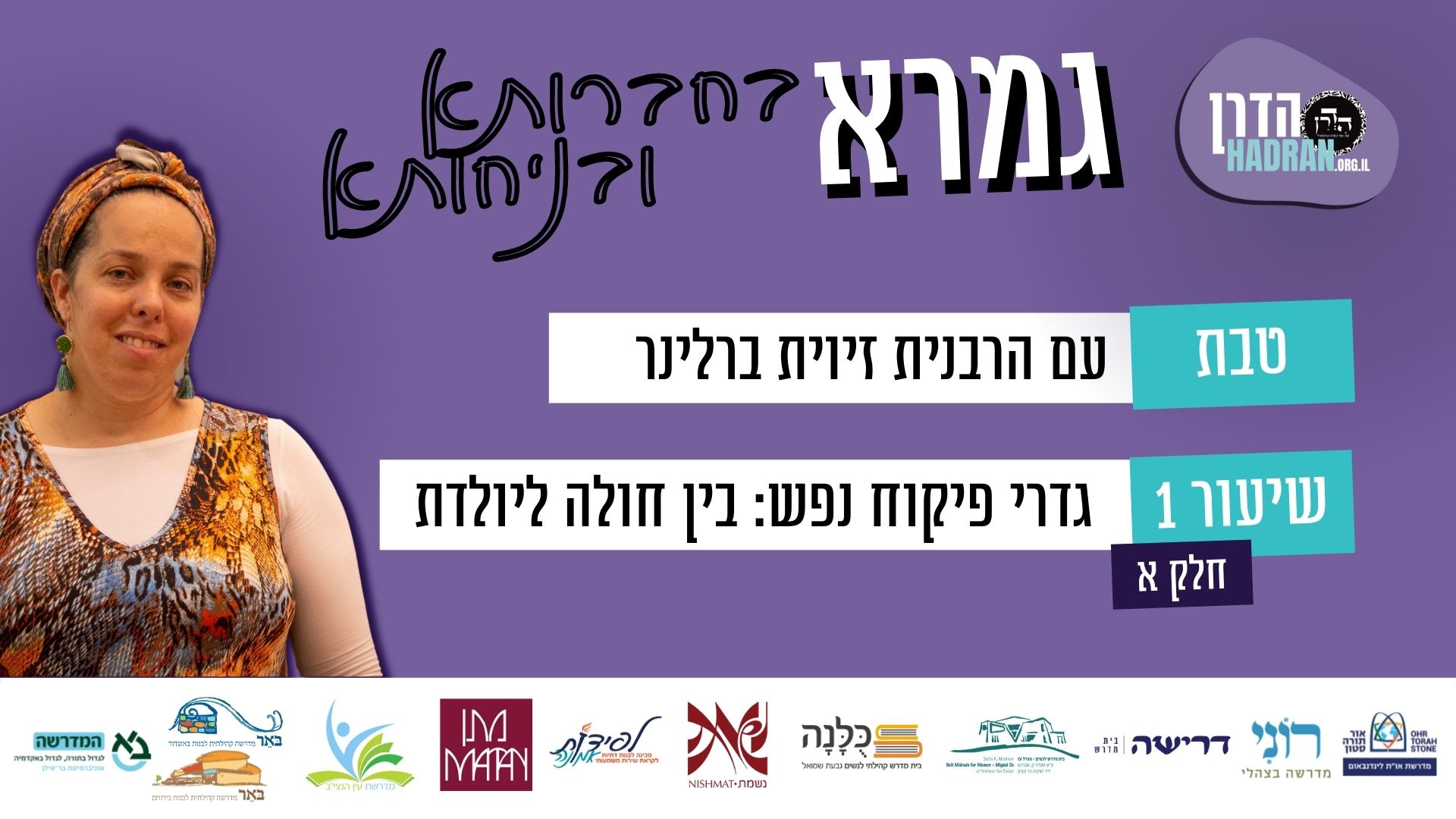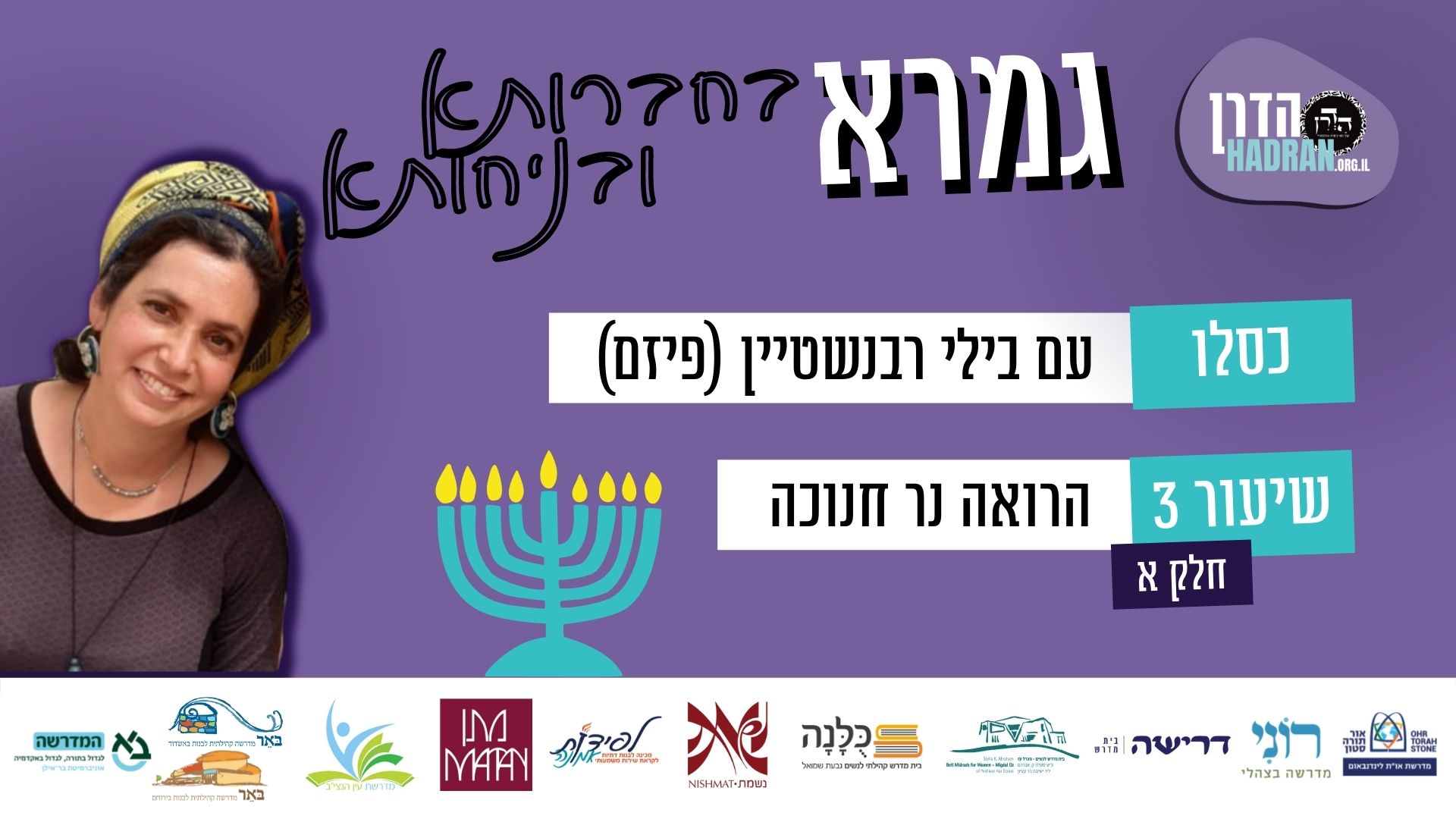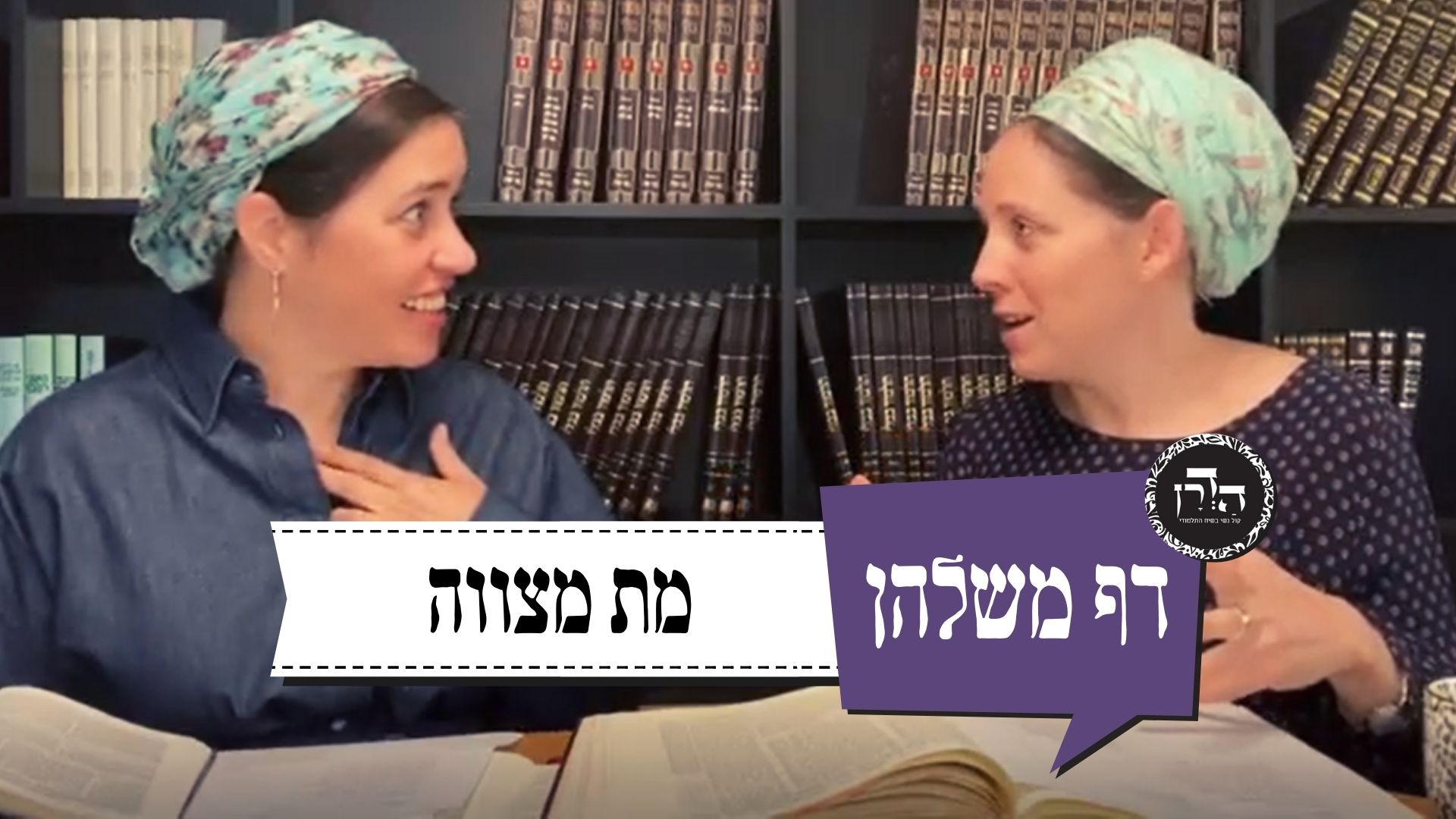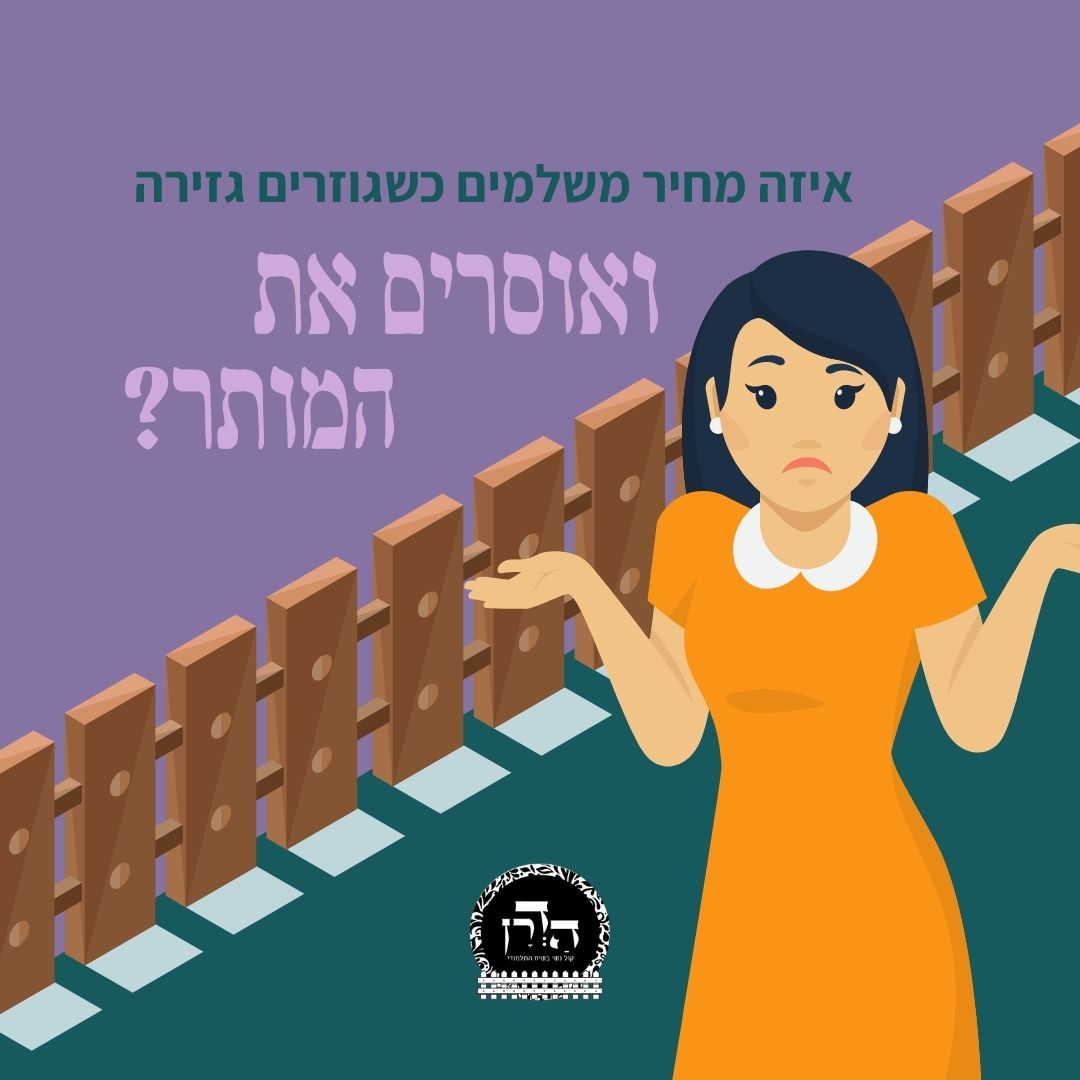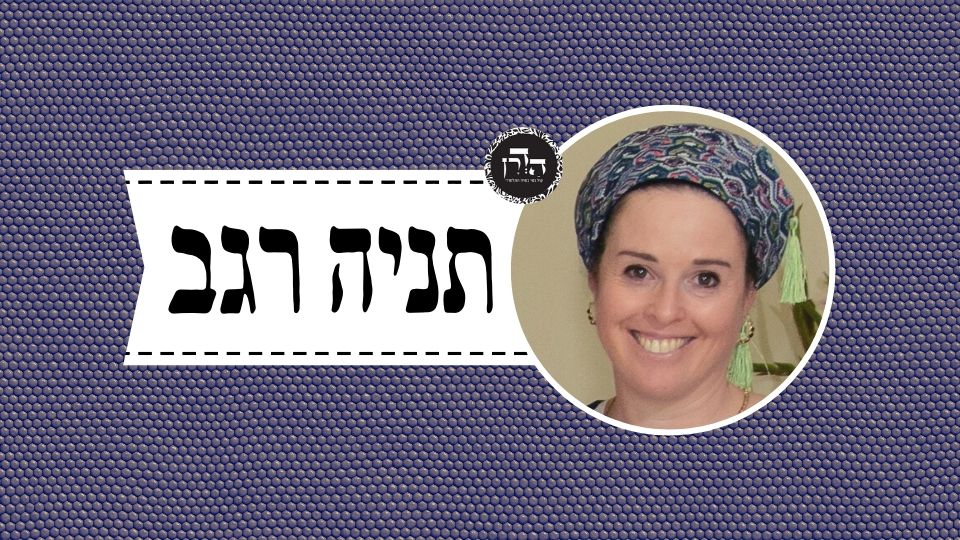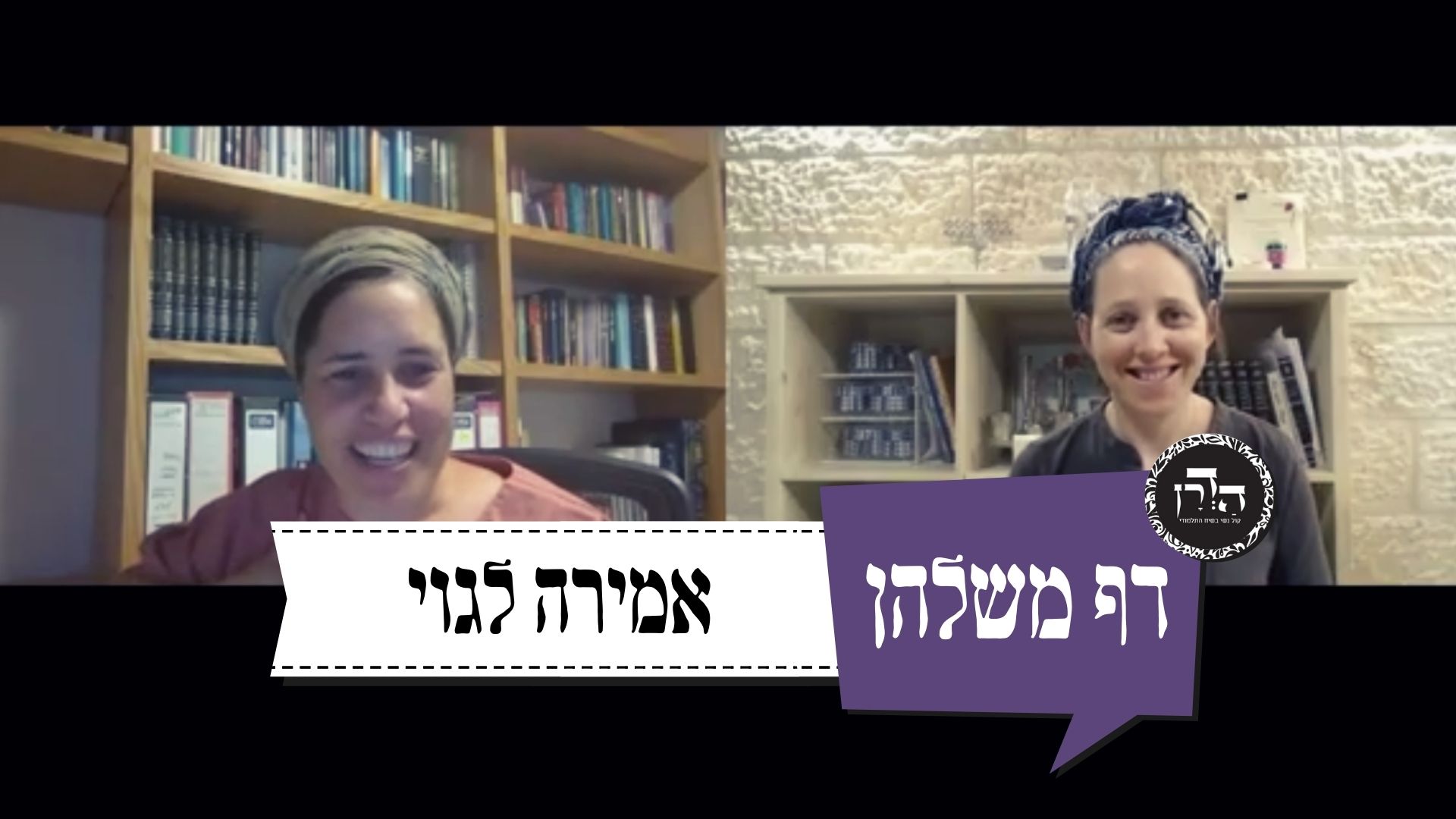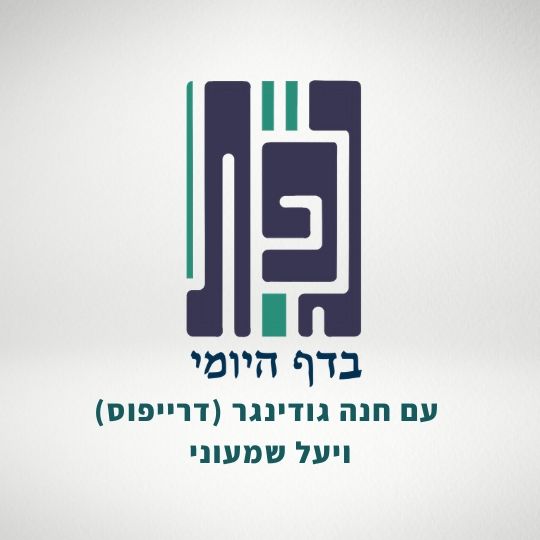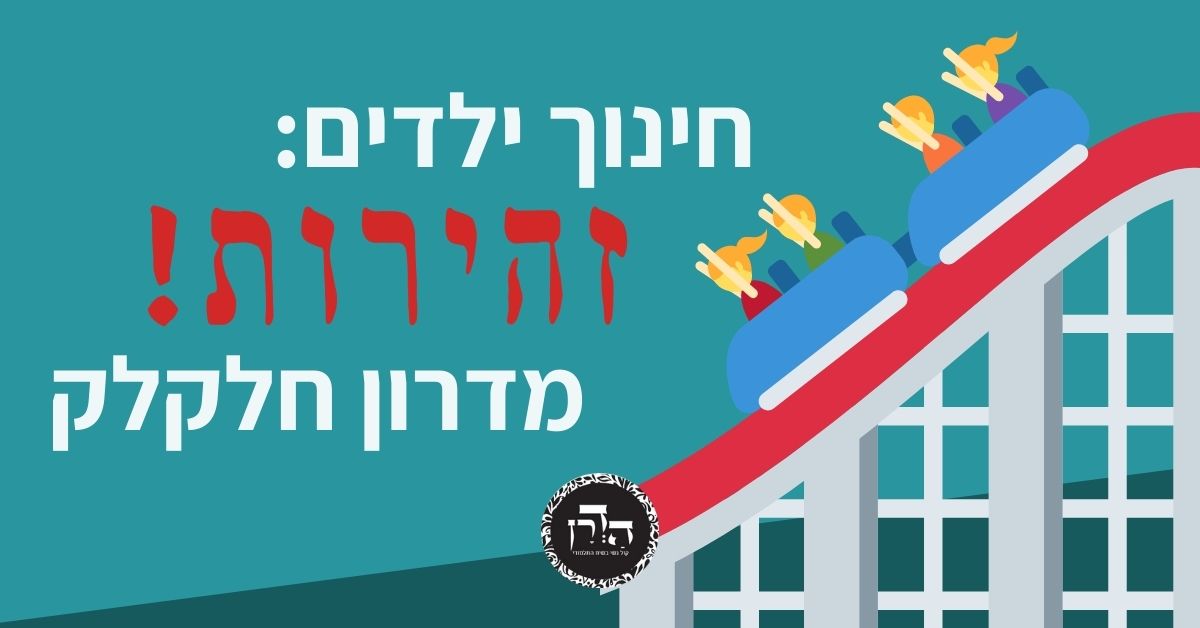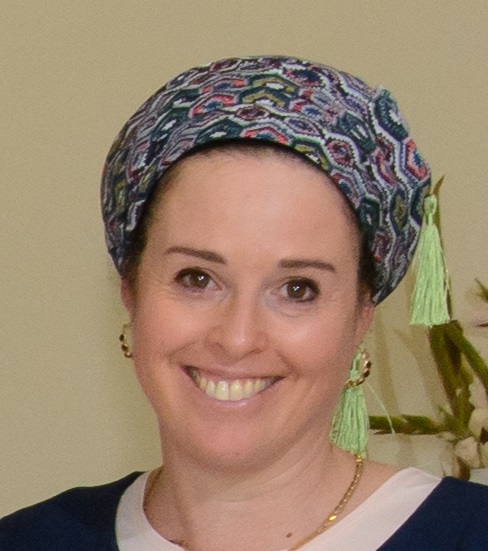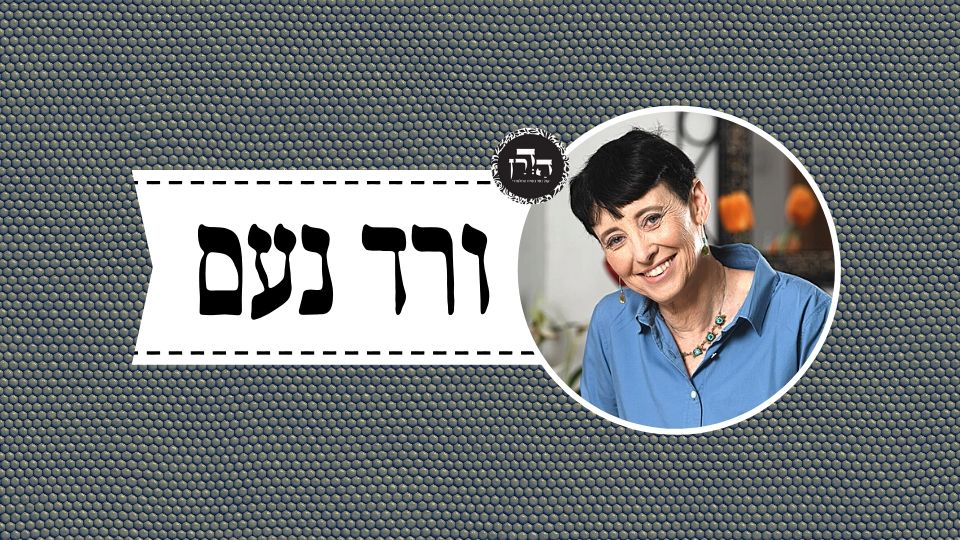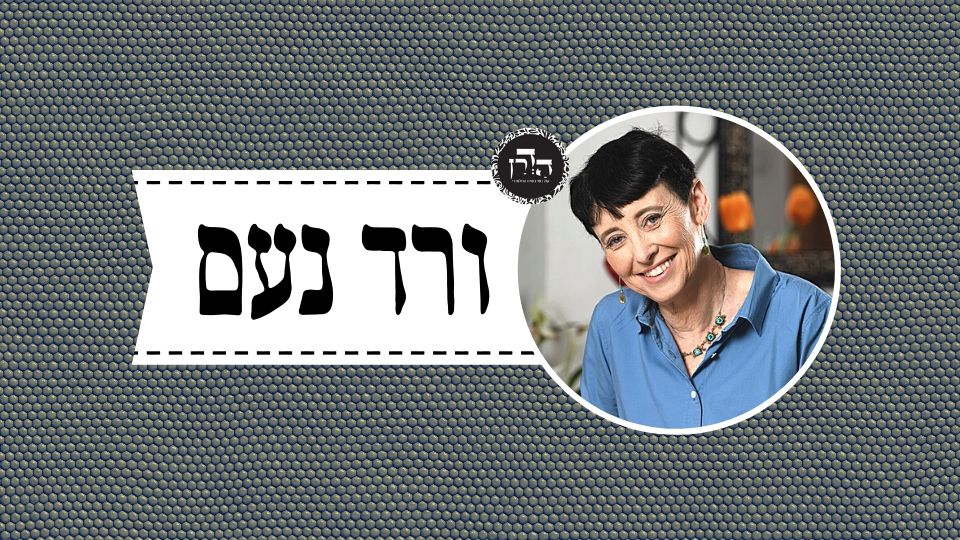שבת צא
מַהוּ דְּתֵימָא, בַּטּוֹלֵי בַּטְּלַהּ לְמַחְשַׁבְתּוֹ — קָא מַשְׁמַע לַן: כׇּל הָעוֹשֶׂה, עַל דַּעַת רִאשׁוֹנָה הוּא עוֹשֶׂה.
Lest you say that in doing so his original intention is completely nullified, since when he carries it out he is no longer conscious of the reason that he stored it, the tanna of the mishna teaches us that anyone who performs an action with an object with which he had dealings in the past, performs the action with the original intention in mind.
אָמַר רַב יְהוּדָה אָמַר שְׁמוּאֵל: מְחַיֵּיב הָיָה רַבִּי מֵאִיר אַף בְּמוֹצִיא חִטָּה אַחַת לִזְרִיעָה. פְּשִׁיטָא, ״כׇּל שֶׁהוּא״ תְּנַן! מַהוּ דְּתֵימָא: ״כׇּל שֶׁהוּא״ — לְאַפּוֹקֵי מִגְּרוֹגֶרֶת, וּלְעוֹלָם עַד דְּאִיכָּא כְּזַיִת, קָא מַשְׁמַע לַן. מַתְקִיף לַהּ רַב יִצְחָק בְּרֵיהּ דְּרַב יְהוּדָה: אֶלָּא מֵעַתָּה, חִישֵּׁב לְהוֹצִיא כׇּל בֵּיתוֹ, הָכִי נָמֵי דְּלָא מִיחַיַּיב עַד דְּמַפֵּיק לְכוּלֵּיהּ?! הָתָם — בָּטְלָה דַּעְתּוֹ אֵצֶל כׇּל אָדָם.
Rav Yehuda said that Shmuel said: Rabbi Meir deemed liable one who carried out even a single wheat seed for sowing on Shabbat. The Gemara asks: This is obvious. We learned in the mishna that the measure that determines liability for one who carries out seeds for sowing on Shabbat is any amount. Since the principle is that an unattributed mishna is in accordance with the opinion of Rabbi Meir, clearly Rabbi Meir would deem him liable for carrying out one seed. He would even deem him liable for carrying out less than one seed. The Gemara answers that Shmuel’s statement was necessary. Lest you say that when the mishna employs the term any amount it is to exclude the standard measure for carrying out food on Shabbat, a dried fig-bulk; and actually one is only liable if there is at least an olive-bulk of whatever he is carrying out. Therefore, Shmuel teaches us that any amount refers to even a single seed. Rav Yitzḥak the son of Rav Yehuda strongly objects to this: But now, based on the approach that the measure of liability depends solely on the intention of the person carrying out the object and not on objective measures, one who planned to carry out the contents of his entire house at once, so too, is he only liable when he carries it out at once? The Gemara answers: There is no comparison. There, with regard to a person who plans to carry out the contents of his entire house, his intention is rendered irrelevant by the opinions of all other people, as most people do not conduct themselves in that manner.
וְכׇל אָדָם אֵין חַיָּיבִין עָלָיו אֶלָּא כְּשִׁיעוּרוֹ. מַתְנִיתִין דְּלָא כְּרַבִּי שִׁמְעוֹן בֶּן אֶלְעָזָר, דְּתַנְיָא: כְּלָל אָמַר רַבִּי שִׁמְעוֹן בֶּן אֶלְעָזָר, כׇּל שֶׁאֵינוֹ כָּשֵׁר לְהַצְנִיעַ, וְאֵין מַצְנִיעִין כָּמוֹהוּ, וְהוּכְשַׁר לָזֶה וְהִצְנִיעוֹ, וּבָא אַחֵר וְהוֹצִיאוֹ — נִתְחַיֵּיב זֶה בְּמַחְשַׁבְתּוֹ שֶׁל זֶה.
We also learned in the mishna: And any other person is only liable for carrying it out on Shabbat if he carries out its measure for liability. The Gemara comments: The mishna is not in accordance with the opinion of Rabbi Shimon ben Elazar, as it was taught in a baraita that Rabbi Shimon ben Elazar stated a principle: Anything that is not fit to be stored, and therefore people do not typically store items like it, but it was deemed fit for storage by this person and he stored it, and another person came and carried out the object that was stored, that person, who carried it out, is rendered liable by the thought of this person, who stored it.
אָמַר רָבָא אָמַר רַב נַחְמָן: הוֹצִיא כִּגְרוֹגֶרֶת לַאֲכִילָה, וְנִמְלַךְ עָלֶיהָ לִזְרִיעָה, אִי נָמֵי לִזְרִיעָה, וְנִמְלַךְ עָלֶיהָ לַאֲכִילָה — חַיָּיב. פְּשִׁיטָא, זִיל הָכָא — אִיכָּא שִׁיעוּרָא, וְזִיל הָכָא — אִיכָּא שִׁיעוּרָא! מַהוּ דְּתֵימָא בָּעֵינַן עֲקִירָה וְהַנָּחָה בַּחֲדָא מַחְשָׁבָה וְהָא לֵיכָּא — קָא מַשְׁמַע לַן.
Rava said that Rav Naḥman said: If one carried out on Shabbat a dried fig-bulk of seeds for eating, and along the way he reconsidered and decided to use them for sowing; or, alternatively, if one intended to carry them out for sowing and reconsidered and decided to use them for eating, he is liable. The Gemara wonders: This is obvious. Whichever way you view this case, he is clearly liable. Go here and examine his initial intention, there is a measure that determines liability; and go here and examine his ultimate intention, there is a measure that determines liability. The Gemara replies that Rav Naḥman’s statement teaches a novel concept. Lest you say that in order to be deemed liable for carrying out an object on Shabbat, we require that the lifting and placing of the object be performed with a single, identical, intention, and that is not the situation here, i.e., that the change in his intention transforms his action into two separate half-labors, therefore Rav Naḥman teaches us that it is considered a single prohibited act, and the person who performed it is liable.
בָּעֵי רָבָא: הוֹצִיא חֲצִי גְרוֹגֶרֶת לִזְרִיעָה וְתָפְחָה, וְנִמְלַךְ עָלֶיהָ לַאֲכִילָה, מַהוּ? אִם תִּמְצֵי לוֹמַר: הָתָם הוּא דְּמִיחַיַּיב — דְּזִיל הָכָא אִיכָּא שִׁיעוּרָא וְזִיל הָכָא אִיכָּא שִׁיעוּרָא, הָכָא, כֵּיוָן דִּבְעִידָּנָא דְּאַפְּקֵהּ לָא הֲוָה בֵּיהּ שִׁיעוּר אֲכִילָה — לָא מִיחַיַּיב, אוֹ דִילְמָא: כֵּיוָן דְּאִילּוּ אִישְׁתִּיק וְלָא חַשֵּׁיב עֲלֵיהּ מִיחַיַּיב אַמַּחְשָׁבָה דִזְרִיעָה — הַשְׁתָּא נָמֵי מִיחַיַּיב.
On the basis of this halakha, Rava raised a dilemma: With regard to one who carried out half a dried fig-bulk of seeds for the purpose of sowing, which is less than the measure that determines liability, and in the meantime the seeds became moist and expanded to a dried fig-bulk, and he reconsidered his plans for the dried fig-bulk of seeds and decided to use it for eating, what is the halakha? The two sides of the dilemma are: If you say that there, in the first case, he is liable because go here and examine his initial intention, there is a measure that determines liability; and go here and examine his ultimate intention, there is a measure that determines liability; but here, in this case, since at the time that he carried it out there was not a measure that determines liability for one who carries out seeds for the purpose of eating, then he is not liable. Or, perhaps, since had he been silent and had no intention with regard to the seeds at all, he would be liable for the intention of carrying it out for the purpose of sowing, then now too, he is liable because, even based on his reconsidered intention, he completed the prohibited labor of carrying out.
וְאִם תִּמְצֵי לוֹמַר: כֵּיוָן דְּאִילּוּ אִישְׁתִּיק וְלָא חַשֵּׁיב עֲלֵיהּ מִיחַיַּיב אַמַּחְשָׁבָה דִזְרִיעָה, הַשְׁתָּא נָמֵי מִיחַיַּיב — הוֹצִיא כִּגְרוֹגֶרֶת לַאֲכִילָה וְצָמְקָה וְנִמְלַךְ עָלֶיהָ לִזְרִיעָה, מַהוּ? הָכָא וַדַּאי כִּי אִישְׁתִּיק — אַמַּחְשָׁבָה קַמַּיְיתָא לָא מִיחַיַּיב, אוֹ דִילְמָא בָּתַר הַשְׁתָּא אָזְלִינַן, וּמִיחַיַּיב. וְאִם תִּמְצֵי לוֹמַר: בָּתַר הַשְׁתָּא אָזְלִינַן, וּמִיחַיַּיב — הוֹצִיא כִּגְרוֹגֶרֶת לַאֲכִילָה וְצָמְקָה וְחָזְרָה וְתָפְחָה, מַהוּ? יֵשׁ דִּיחוּי לְעִנְיַן שַׁבָּת, אוֹ אֵין דִּיחוּי לְעִנְיַן שַׁבָּת? תֵּיקוּ.
And if you say that since had he been silent and had no intention with regard to the seeds at all, he would be liable for the intention of carrying it out for the purpose of sowing, now too, he is liable, if he carried out seeds in the measure of a dried fig-bulk for the purpose of eating, and they shriveled until there was less than that measure, and he reconsidered and decided to use them for the purpose of sowing, then what is the halakha? Here, certainly had he been silent and had no intention with regard to the seeds at all, for the original intention he is not liable because there remains less than the measure for liability; or perhaps we follow his intention at present and he is liable. And if you say that we follow his intention at present, and he is liable, the dilemma arises: If one carried out a dried fig-bulk of seeds for the purpose of eating, and it shriveled until there was less than that measure, and then it expanded to a fig-bulk, what is the halakha? Is there disqualification with regard to the halakhot of Shabbat? Since at a certain point there was less than the measure that determines liability, he can no longer be held liable for carrying it out even if it expands. Or, perhaps there is no disqualification with regard to the halakhot of Shabbat. The crucial moments that determine liability for carrying an object are the moment that it is lifted and the moment that it is placed. At both of those junctures, the measure for liability was whole. No resolution was found to any of these dilemmas. Therefore, let them stand unresolved.
בְּעָא מִינֵּיהּ רָבָא מֵרַב נַחְמָן: זָרַק כְּזַיִת תְּרוּמָה לְבַיִת טָמֵא מַהוּ? לְמַאי: אִי לְעִנְיַן שַׁבָּת — כִּגְרוֹגֶרֶת בָּעֵינַן, אִי לְעִנְיַן טוּמְאָה — כְּבֵיצָה אוֹכָלִין בָּעֵינַן! לְעוֹלָם לְעִנְיַן שַׁבָּת, וּכְגוֹן דְּאִיכָּא פָּחוֹת מִכְּבֵיצָה אוֹכָלִין, וְהַאי מַשְׁלִימוֹ לִכְבֵיצָה. מַאי: מִדְּמִצְטָרֵף לְעִנְיַן טוּמְאָה — מִיחַיַּיב נָמֵי לְעִנְיַן שַׁבָּת, אוֹ דִילְמָא: כׇּל לְעִנְיַן שַׁבָּת כִּגְרוֹגֶרֶת בָּעֵינַן? אֲמַר לֵיהּ: תְּנֵיתוּהָ. אַבָּא שָׁאוּל אוֹמֵר: שְׁתֵּי הַלֶּחֶם וְלֶחֶם הַפָּנִים שִׁיעוּרָן כִּגְרוֹגֶרֶת, וְאַמַּאי? לֵימָא: מִדִּלְעִנְיַן
Rava raised a dilemma before Rav Naḥman: If one threw an olive-bulk of teruma into an impure house, what is the halakha? The Gemara attempts to clarify the question. With regard to what matter was this dilemma raised? If it was raised with regard to Shabbat, the measure that we require to determine liability for carrying out is a dried fig-bulk, and an olive-bulk is smaller than that. And if it was raised with regard to ritual impurity, the measure that we require to determine impurity for food is at least an egg-bulk, and an olive-bulk is smaller than that as well. The Gemara answers: Actually, this dilemma was raised with regard to Shabbat. And it is referring to a case where there is less than an egg-bulk of food in the house, and this olive-bulk that was thrown into the house completes the measure of the food in the house to an egg-bulk. The dilemma is: What is the halakha in that case? Is it from the fact that the olive-bulk joins together with the food in the house with regard to ritual impurity that he is also liable with regard to Shabbat? Or perhaps, all matters concerning carrying out on Shabbat require a dried fig-bulk in order to be liable. Rav Naḥman said to him: We already learned the resolution to that dilemma in a baraita: Abba Shaul says: The measure that determines liability for carrying out the wave-offering of the two loaves of bread and the showbread that were in the Temple is a dried fig-bulk. The Gemara asks: And why is that their measure? Let us say: From the fact that with regard to the matter of
יוֹצֵא — בִּכְזַיִת, לְעִנְיַן שַׁבָּת נָמֵי — בִּכְזַיִת! הָכִי הַשְׁתָּא?! הָתָם — מִדְּאַפְּקֵיהּ חוּץ לְחוֹמַת הָעֲזָרָה אִיפְּסִיל לֵיהּ בְּיוֹצֵא, אַשַּׁבָּת לָא מִיחַיַּיב עַד דְּמַפֵּיק לֵיהּ לִרְשׁוּת הָרַבִּים, הָכָא — שַׁבָּת וְטוּמְאָה בַּהֲדֵי הֲדָדֵי קָאָתְיָין.
disqualification of consecrated items due to leaving the Temple courtyard, the significant measure is an olive-bulk, as one who eats that measure of disqualified consecrated items is liable; with regard to Shabbat, its measure for liability should also be an olive-bulk. The Gemara rejects this: How can you make that comparison? There, in the case of the consecrated items, from the moment that he took it beyond the courtyard wall it was disqualified due to the prohibition of leaving. However, with regard to Shabbat, he is only liable when he takes it into the public domain, which is far beyond the courtyard walls. Here, in the case where one threw teruma into the house on Shabbat, the prohibition of Shabbat and the impurity of the teruma come simultaneously. Since the olive-bulk is significant in terms of impurity, it is similarly significant with regard to Shabbat.
חָזַר וְהִכְנִיסוֹ אֵינוֹ חַיָּיב אֶלָּא כְּשִׁיעוּרוֹ. פְּשִׁיטָא! אָמַר אַבָּיֵי: הָכָא בְּמַאי עָסְקִינַן — כְּגוֹן שֶׁזְּרָקוֹ לְאוֹצָר וּמְקוֹמוֹ נִיכָּר. מַהוּ דְּתֵימָא: כֵּיוָן דִּמְקוֹמוֹ נִיכָּר בְּמִילְּתֵיהּ קַמָּיְיתָא קָאֵי, קָא מַשְׁמַע לַן — מִדְּזַרְקֵיהּ לְאוֹצָר, בַּטּוֹלֵי בַּטְּלֵיהּ.
We learned in the mishna: If one stored the seed, carried it out, and then brought it back in, he is only liable if he brought in its measure for liability. The Gemara asks: This is obvious. By bringing it back into the house he indicates that he no longer considers it significant, and the object then assumes the legal status of an object belonging to anyone else. Abaye said: With what are we dealing here? We are dealing with a case where he threw it into the storehouse and its place is clearly discernible to the one who threw it, in that he knows where it landed. Lest you say that because its location is discernible it maintains its original status, the mishna teaches us that from the fact that he threw it into the storehouse, he indicated that he nullified the object’s previous significance.
מַתְנִי׳ הַמּוֹצִיא אוֹכָלִין וּנְתָנָן עַל הָאַסְקוּפָּה, בֵּין שֶׁחָזַר וְהוֹצִיאָן, בֵּין שֶׁהוֹצִיאָן אַחֵר — פָּטוּר, מִפְּנֵי שֶׁלֹּא עָשָׂה מְלַאכְתּוֹ בְּבַת אַחַת. קוּפָּה שֶׁהִיא מְלֵיאָה פֵּירוֹת וּנְתָנָהּ עַל אַסְקוּפָּה הַחִיצוֹנָה, אַף עַל פִּי שֶׁרוֹב פֵּירוֹת מִבַּחוּץ — פָּטוּר, עַד שֶׁיּוֹצִיא אֶת כָּל הַקּוּפָּה.
MISHNA: One who carries out food from his house on Shabbat and placed it on the threshold of the door, whether he then carried it out from the threshold into the public domain or another person carried it out, he is exempt because he did not perform his prohibited labor of carrying from domain to domain all at once. Similarly, if one placed a basket that is full of fruit on the outer threshold, which is in the public domain, and part of the basket remained inside, even though most of the fruit is outside in the public domain, he is exempt until he carries out the entire basket.
גְּמָ׳ הַאי אַסְקוּפָּה, מַאי? אִילֵימָא אַסְקוּפָּה רְשׁוּת הָרַבִּים — פָּטוּר? הָא קָא מַפֵּיק מֵרְשׁוּת הַיָּחִיד לִרְשׁוּת הָרַבִּים! אֶלָּא אַסְקוּפָּה רְשׁוּת הַיָּחִיד. בֵּין שֶׁחָזַר וְהוֹצִיאָן, בֵּין שֶׁהוֹצִיאָן אַחֵר — פָּטוּר? הָא קָא מַפֵּיק מֵרְשׁוּת הַיָּחִיד לִרְשׁוּת הָרַבִּים!
GEMARA: The Gemara begins by asking: What is the nature of this threshold in terms of Shabbat? If you say that it is a threshold that has the legal status of the public domain, in that it does not extend above nine handbreadths, and its area is four by four handbreadths, and it is suitable for use by the multitudes, why is he exempt? Didn’t he carry out food from the private domain to the public domain? Rather, say that it is a threshold that has the legal status of the private domain, in that it extends above ten handbreadths, and its area is four by four handbreadths. In that case, why does the mishna say: Whether he then carried it out from the threshold into the public domain or another person carried it out, he is exempt? Why should he be exempt? Didn’t he carry out food from the private domain to the public domain?
אֶלָּא אַסְקוּפָּה כַּרְמְלִית, וְהָא קָא מַשְׁמַע לַן: טַעְמָא דְּנָח בְּכַרְמְלִית, הָא לָא נָח בְּכַרְמְלִית — מִיחַיַּיב. מַתְנִיתִין דְּלָא כְּבֶן עַזַּאי. דְּתַנְיָא: הַמּוֹצִיא מֵחֲנוּת לִפְלַטְיָא דֶּרֶךְ סְטָיו — חַיָּיב, וּבֶן עַזַּאי פּוֹטֵר.
Rather, the mishna is referring to a threshold that is a karmelit. And it teaches us the following: The reason that he is exempt is due to the fact that the object came to rest in a karmelit. However, if the object did not come to rest in a karmelit, he is liable even if it passed through a karmelit. This comes to teach that the mishna is not in accordance with the opinion of ben Azzai, as it was taught in a baraita: One who carries out an object from a store, which is a private domain, to a plaza, which is a public domain, via a colonnade, which is a karmelit, is liable because he lifted the object in a private domain and placed it in a public domain. And ben Azzai deems him exempt because, in his opinion, an exempt domain separates between the private and public domains.
קוּפָּה שֶׁהִיא מְלֵיאָה כּוּ׳. אָמַר חִזְקִיָּה: לֹא שָׁנוּ אֶלָּא בְּקוּפָּה מְלֵיאָה קִישּׁוּאִין וְדִלּוּעִין, אֲבָל מְלֵיאָה חַרְדָּל — חַיָּיב. אַלְמָא קָסָבַר אֶגֶד כְּלִי — לָא שְׁמֵיהּ אֶגֶד. וְרַבִּי יוֹחָנָן אָמַר: אֲפִילּוּ מְלֵיאָה חַרְדָּל — פָּטוּר. אַלְמָא קָסָבַר אֶגֶד כְּלִי — שְׁמֵיהּ אֶגֶד.
We learned in the mishna: If one placed a basket that is full of fruit on the outer threshold, he is only liable if he carries out the entire basket. Ḥizkiya said: They only taught this halakha with regard to a basket full of cucumbers and gourds, both of which are long. Part of each fruit remains inside even when most of the basket is in the public domain. However, if the basket was full of mustard seeds, he is liable for carrying out a measure of individual mustard seeds to the public domain. The Gemara concludes: Apparently, he holds that the fusion of several objects in a single vessel is not considered fusion. Even though several objects are in a single basket, they do not have the legal status of a single unit. And Rabbi Yoḥanan said: Even if the basket were full of mustard seeds, he is exempt. Apparently, he holds that the fusion of several objects in a single vessel is considered fusion.
אָמַר רַבִּי זֵירָא: מַתְנִיתִין דְּלָא כְּחִזְקִיָּה דַּיְקָא, וּדְלָא כְּרַבִּי יוֹחָנָן דַּיְקָא: כְּחִזְקִיָּה לָא דַּיְקָא — דְּקָתָנֵי: ״עַד שֶׁיּוֹצִיא אֶת כָּל הַקּוּפָּה״ — טַעְמָא דְּכׇל הַקּוּפָּה, הָא כׇּל הַפֵּירוֹת — פָּטוּר, אַלְמָא קָסָבַר אֶגֶד כְּלִי שְׁמֵיהּ אֶגֶד. כְּרַבִּי יוֹחָנָן לָא דַּיְקָא — דְּקָתָנֵי: ״אַף עַל פִּי שֶׁרוֹב פֵּירוֹת בַּחוּץ״ — טַעְמָא דְּרוֹב פֵּירוֹת, הָא כׇּל פֵּירוֹת, אַף עַל גַּב דַּאֲגִידָא קוּפָּה מִגַּוַּאי — חַיָּיב, אַלְמָא קָסָבַר אֶגֶד כְּלִי לָא שְׁמֵיהּ אֶגֶד.
Rabbi Zeira said: The language of the mishna does not precisely correspond with the opinion of Ḥizkiya, and it does not precisely correspond with the opinion of Rabbi Yoḥanan. The Gemara explains: It does not precisely correspond with the opinion of Ḥizkiya, as the mishna taught: Until he carries out the entire basket. The Gemara infers: The reason that he is liable is because he carried out the entire basket. However, if part of the basket remained inside, even if he carried out all the fruit, he is exempt. Apparently, the mishna holds that fusion of several objects in a single vessel is considered fusion. Since the vessel fuses the fruit into one entity, when part of the basket remains inside, by extension its fruit is also considered to have remained inside. And it does not precisely correspond with the opinion of Rabbi Yoḥanan, as the mishna taught: Even though most of the fruit is outside. The Gemara infers: The reason that he is exempt is because only most of the fruit is outside. However, if all the fruit were outside, then even though part of the basket remains bound inside, he is liable. Apparently, the mishna holds that the fusion of several objects in a single vessel is not considered fusion.
וְאֶלָּא קַשְׁיָא! חִזְקִיָּה מְתָרֵץ לְטַעְמֵיהּ, וְרַבִּי יוֹחָנָן מְתָרֵץ לְטַעְמֵיהּ. חִזְקִיָּה מְתָרֵץ לְטַעְמֵיהּ: ״עַד שֶׁיּוֹצִיא אֶת כָּל הַקּוּפָּה״, בַּמֶּה דְּבָרִים אֲמוּרִים — בְּקוּפָּה מְלֵיאָה קִישּׁוּאִין וְדִלּוּעִין, אֲבָל מְלֵיאָה חַרְדָּל — נַעֲשֶׂה כְּמִי שֶׁהוֹצִיא אֶת כָּל הַקּוּפָּה, וְחַיָּיב. רַבִּי יוֹחָנָן מְתָרֵץ לְטַעְמֵיהּ, ״אַף עַל פִּי שֶׁרוֹב פֵּירוֹת בַּחוּץ״, וְלֹא רוֹב פֵּירוֹת בִּלְבַד, אֶלָּא אֲפִילּוּ כׇּל פֵּירוֹת — פָּטוּר, עַד שֶׁיּוֹצִיא אֶת כָּל הַקּוּפָּה.
The Gemara asks: However, that is difficult. The inferences of the mishna are contradictory. The Gemara explains: Ḥizkiya resolves the contradiction in accordance with his reasoning, and Rabbi Yoḥanan resolves the contradiction in accordance with his reasoning. The Gemara elaborates: According to both of the Sages, the mishna is referring to two distinct cases. Ḥizkiya resolves the contradiction according to his reasoning. The phrase: Until he carries out the entire basket; in what case is this statement said? It is said in the case of a basket full of cucumbers and gourds. However, in the case of a basket full of mustard seeds, he becomes as one who carried out the entire basket, and he is liable for carrying out the mustard seeds. And Rabbi Yoḥanan resolves the contradiction according to his reasoning: When we learned: Even though most of the fruit is outside, he is exempt; and that ruling is true not only if he carried out most of the fruit, but even if he carried out all the fruit he is also exempt, until he carries out the entire basket.
מֵיתִיבִי: הַמּוֹצִיא קוּפַּת הָרוֹכְלִין וּנְתָנָהּ עַל אַסְקוּפָּה הַחִיצוֹנָה, אַף עַל פִּי שֶׁרוֹב מִינִין בַּחוּץ — פָּטוּר, עַד שֶׁיּוֹצִיא אֶת כָּל הַקּוּפָּה. קָא סָלְקָא דַּעְתָּךְ בִּצְרָרֵי, קַשְׁיָא לְחִזְקִיָּה! אָמַר לָךְ חִזְקִיָּה: הָכָא בְּמַאי עָסְקִינַן — בְּאוּרְנָסֵי.
The Gemara raises an objection from that which was taught in a baraita: One who carries out the merchant’s basket on Shabbat that contains different items, primarily spices, and placed it on the outer threshold of the house, even though most of the types of items in the basket are outside, he is exempt until he carries out the entire basket. It might enter your mind to say that this is referring to a basket full of bundles of different spices. That is difficult according to the opinion of Ḥizkiya, as even though most of the bundles entered the public domain, he is exempt. The Gemara answers: Ḥizkiya could have said to you: With what are we dealing here? With stalks [urnasei]. The spices are in the form of stalks that fill the entire length of the basket. As long as part of the basket remains inside, part of each stalk remains inside as well.
מֵתִיב רַב בִּיבִי בַּר אַבָּיֵי: הַגּוֹנֵב כִּיס בְּשַׁבָּת — חַיָּיב, שֶׁכְּבָר נִתְחַיֵּיב בִּגְנֵיבָה קוֹדֶם שֶׁיָּבֹא לִידֵי אִיסּוּר שַׁבָּת. הָיָה מְגָרֵר וְיוֹצֵא — פָּטוּר, שֶׁהֲרֵי אִיסּוּר גְּנֵיבָה וְאִיסּוּר שַׁבָּת בָּאִין כְּאֶחָד. וְאִי סָלְקָא דַעְתָּךְ אֶגֶד כְּלִי — שְׁמֵיהּ אֶגֶד, קָדֵים לֵיהּ אִיסּוּר גְּנֵיבָה לְאִיסּוּר שַׁבָּת!
And Rav Beivai bar Abaye also raised an objection from that which we learned: One who steals a purse on Shabbat is liable for the theft. Based on the principle that one who is liable to receive two punishments receives the greater of the two, in this case one should be exempt from payment for the theft, since performing a prohibited labor on Shabbat is punishable by stoning. However, this case is different because he was already liable for theft as soon as he lifted the purse. This took place before he came to violate the prohibition of performing prohibited labor on Shabbat by carrying it into the public domain. However, if he did not lift the purse, but was dragging it on the ground and exiting the private domain, he is exempt from paying for the theft, as in that case, he is only liable for the theft when he drags the purse out of the owner’s property into the public domain. The prohibition of theft and the prohibition of Shabbat are violated all at once. For the purposes of this discussion: And if it enters your mind to say that fusion of several objects within a single vessel is considered fusion, in this case the prohibition of theft precedes the prohibition of Shabbat. At the moment that the mouth of the purse enters the public domain, he is liable for theft because it is as if the money inside had been carried out. With regard to Shabbat, he would not be liable until the entire purse entered the public domain.
אִי דְּאַפְּקֵיהּ דֶּרֶךְ פִּיו — הָכִי נָמֵי. הָכָא בְּמַאי עָסְקִינַן? — דְּאַפְּקֵיהּ דֶּרֶךְ שׁוּלָיו. וְהָאִיכָּא מְקוֹם חֲלָמָה,
The Gemara explains: If this is referring to a case where he carried it out by way of its mouth, indeed that is so, he would be liable for theft. However, with what are we dealing here? We are dealing with a case where he carried it out by the underside of the purse. Since none of the money is accessible until the entire purse is in the public domain, he violated the prohibitions simultaneously. The Gemara asks: Isn’t there the area of the seam? He could gain access to the money even if he dragged out the purse by way of its underside,



